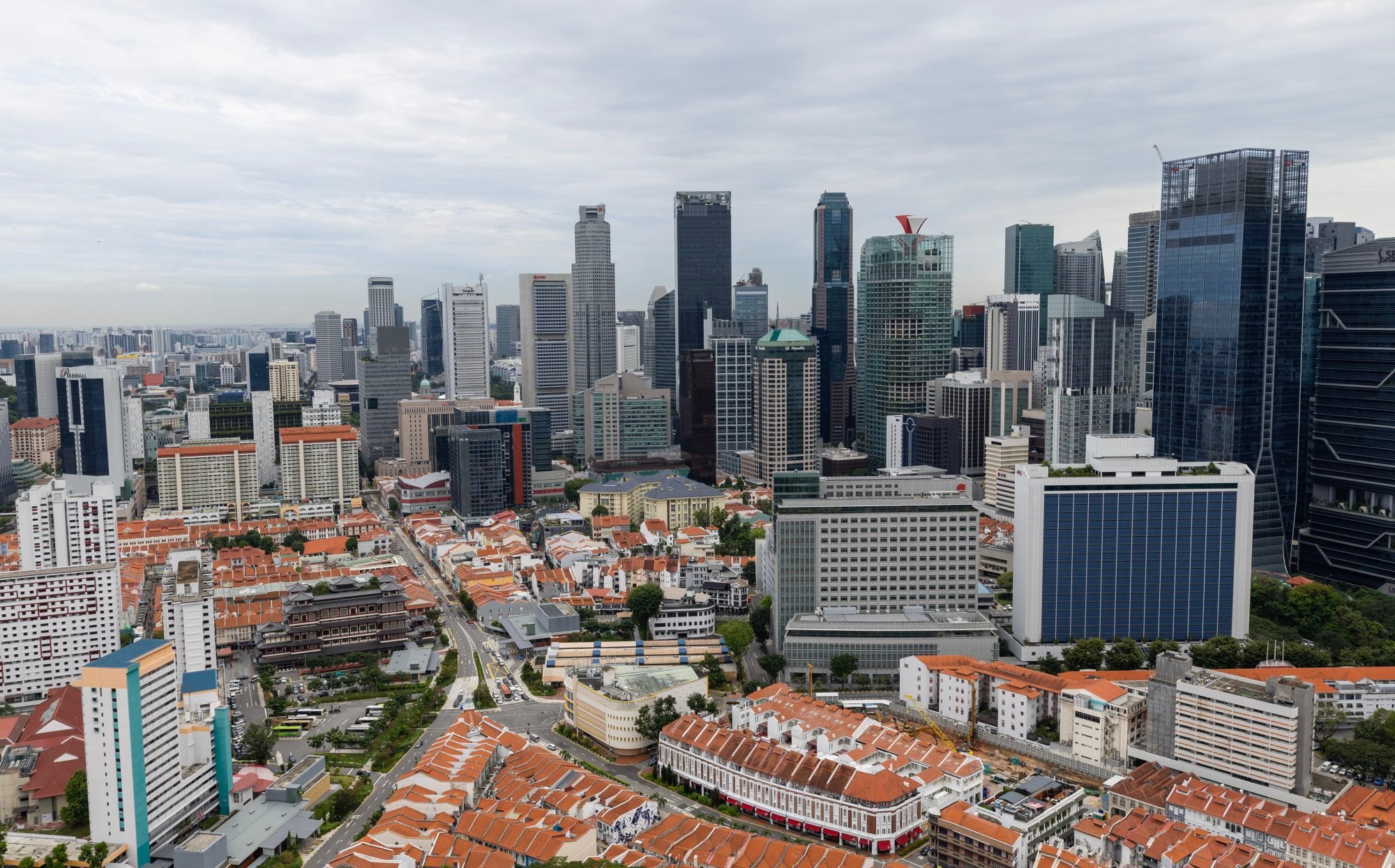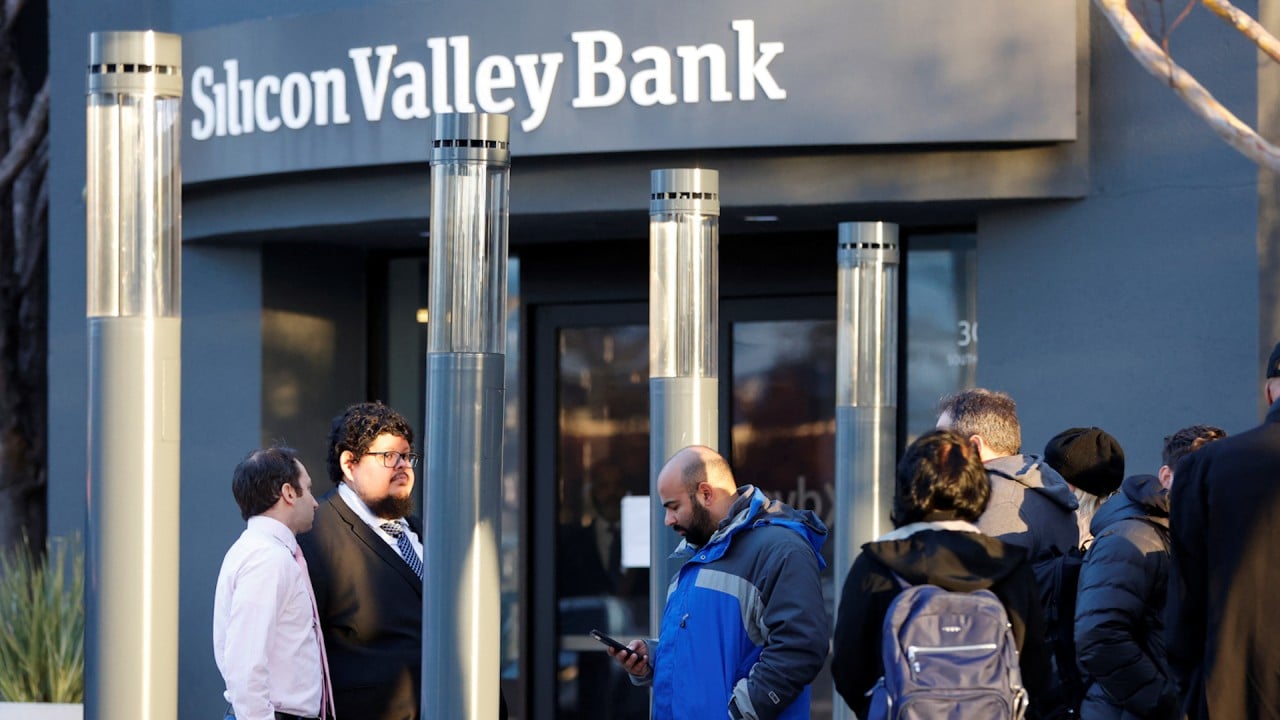Asia’s once red-hot start-up market shows signs of revival after ‘funding winter’
[ad_1]
The lack of funding over the past few months, compared to the easy money that was available during the pandemic, has forced businesses to cut costs and find quicker paths towards achieving profits.
“I expect more of that to happen in the course of next year,” Manson said. Creditors were no longer willing to accept revenues far in the future, he said, adding that it would probably mean more consolidation for businesses which had struggled over the past few months.
The collapse of the Silicon Valley Bank in mid-March sent shock waves across the banking sector and the overall economy, further sucking out liquidity worldwide. Western investors had stepped back from the region, analysts said.
A 2023 report by London-based investment data company Preqin showed deal volumes in Southeast Asia more than halved in the first nine months of this year to 578, with an aggregate value of US$6.7 billion. This was equivalent to less than a quarter of 2021’s figure.
Despite this, tailwinds for Southeast Asia continue to work in its favour. An increasing population, expanding digital technology, and strong economic growth are propelling investment opportunities.
According to Preqin’s June 2023 investor survey, 31 per cent of respondents viewed Southeast Asia as the emerging market presenting the best venture capital opportunities. This compared with 41 per cent who felt India was leading the way, and 34 per cent who cited China.
Venture capital funding from within the region was likely to pick up in the coming months, “giving the West, specifically Silicon Valley, a bit of a run for its money”, Manson said. “I also see the Middle East as a pocket of investments.”
There were more funding opportunities because of higher growth prospects and relatively low valuations in the region, Mason added.
The new funding environment is likely to be reset completely, centring around the themes of decarbonisation, demographics (younger population) and deglobalisation (building supply chains nearby), according to global asset manager Schroders in a report this month.

Funding reset
Asian businesses with “meaningful themes” such as climate and sustainability are likely to corner more funding opportunities, concurred Lawrence Loh, director of the Centre for Governance and Sustainability at NUS Business School.
“Start-up funding may tap from emerging and burgeoning sources of funds in Asia, especially private capital,” he said, adding that “wealthy family businesses and ultra-high net-worth individuals may be the new catalysts”.
Large start-ups like Grab, which are flush with cash, are likely to be among organisations looking for ways to invest their money, industry executives say.
Waning enthusiasm for initial public offers, or public share offers, was also likely to get rejuvenated, Loh said.
Is India the new China for unicorns and start-up investors?
Is India the new China for unicorns and start-up investors?
Parts of Asia are already experiencing a boom.
India topped the world with as many as 80 firms listing on exchanges in the first half of 2023. Indonesia, too, is seeing a similar pickup, with as many as 66 firms listing during the year compared to 59 in 2022, witnessing a 33 per cent increase in the third quarter.
“We do expect improved IPO activity next year. Given countries contributing [more than] 50 per cent of global population and [more than] 50 per cent of global GDP will be going for elections, we expect the global macro conditions to be robust,” said Mandar Donde, head of Asia Pacific Technology, Media & Telecom Investment Banking, Bank of America.
Others said green shoots in funding were already visible.
“We’re observing an uptick in venture capital activity, particularly in the US$3 million to US$5 million deal space,” said Sam Lee, a partner at financial advisory firm Paloe in Singapore.
Asian start-up valuations in Asia that were rarely below US$10 million had fallen to US$3 million to US$10 million, improving their chances of funding, said Amit Gupta, president of The Indus Entrepreneurs, Singapore, a non-profit that mentors and funds businesses, and founder of Ecosystm Group.

Besides financial hub Singapore, other bright spots in funding had emerged recently, such as Indonesia, he said, adding that the Philippines and Thailand were promising.
Investors are also scouring for opportunities in low-profile markets like Cambodia.
Thierry Tea, vice-president of Overseas Cambodian Investment Corporation, said he had overseen 20 such investments this year and was planning to step up funding next year, tapping into growing aspirations of the country’s young population.
Despite growing optimism, a fraught global environment due to geopolitical tensions such as the Israel-Gaza and Russia-Ukraine conflicts will mean that investors will be wary about business prospects.
“Overall, if new success stories emerge, it will all contribute to a positive signal to investors and encourage them to invest in more start-ups,” said Percy Hung, co-founder and CEO of Choco Up, adding that he was bullish about firms which had survived the “funding winter”.
[ad_2]
Source link


